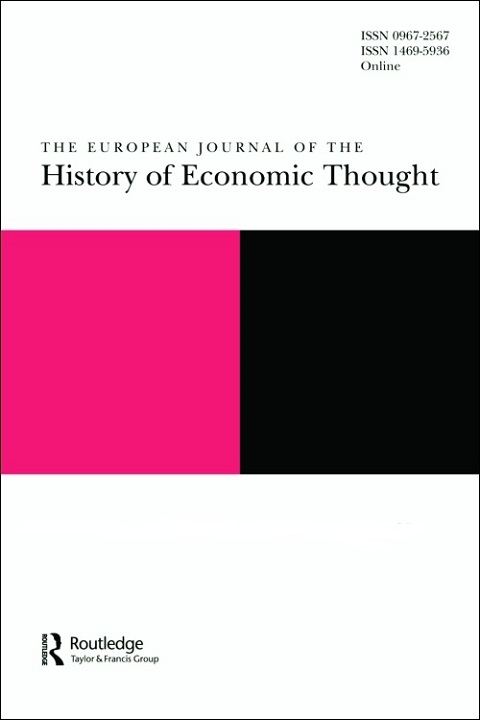
Journal of the History of Economic Thought
Volume 4, Issue 1, Mar 1997
Pages 1-22
- DOI: 10.1080/10427719700000017
- Print ISSN: 0967-2567
- Online ISSN: 1469-5936
An eighteenth-century view of economic development: Hume and Steuart
Despite their differences on other questions, Hume and Steuart had almost identical theories of long-run economic development. In their story, agriculture can produce a surplus of food to support urban manufacturing (and other things), but will not do so unless farmers want to trade the surplus for something. In the early stages of development, the absence of attractive manufactured goods gives no incentive to farmers. Once a taste for ‘luxury’ emerges, normally stimulated by imports from elsewhere, agriculture and industry expand together. Developments is driven by changing tastes combined with a changing menu of goods on offer.